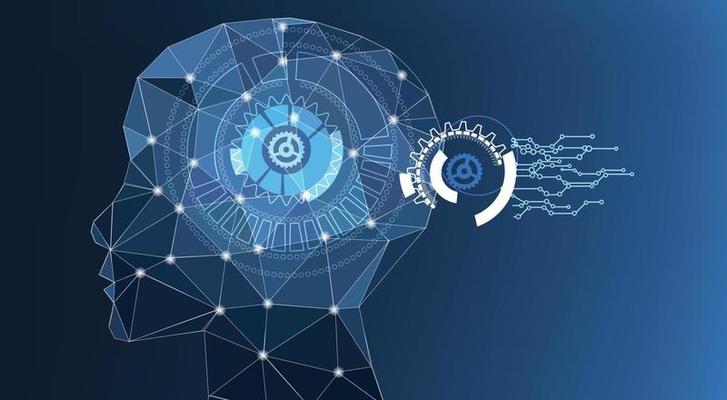
Top Themes for 2025

Dave Wallace shared some good insights for 2025.
As we look ahead to 2025, technological advances continue to reshape the financial services sector and the broader digital world. This blog post highlights four emergent themes driving innovation and debate: the rise of quantum computing, the potential of Artificial General Intelligence (AGI), the intersection of AI and environmental sustainability, and the burgeoning concept of experience-led composability. Each theme carries far-reaching implications for businesses, consumers, and regulators alike.
What to Expect
Quantum Computing Gains Momentum
Stepping Beyond Classical Processing
Quantum computing promises exponentially faster processing speeds compared to classical systems. By leveraging the principles of superposition and entanglement, quantum computers can handle complex problem-solving in seconds—tasks that might otherwise take classical systems years to complete.
Use Cases in Finance and Security
In finance, quantum algorithms could accelerate tasks like risk analysis, portfolio optimization, and fraud detection. Early adopters in banking, insurance, and fintech foresee quantum-enabled breakthroughs in predictive modeling and real-time analytics. However, the post also points to concerns over security, as quantum systems could potentially crack modern encryption protocols, prompting urgent discussions about quantum-safe cryptography.
Barriers to Adoption
Despite the hype, the blog acknowledges that quantum computing still requires significant R&D investment. Hardware challenges, error correction, and complex cooling requirements limit widespread deployment. Over the next few years, organizations will need strategic roadmaps to explore quantum solutions while mitigating potential risks to data integrity and cybersecurity.
AGI: From Narrow to General Intelligence
Expanding the Scope of AI
Today’s AI applications often excel at specialized tasks but lack the versatility of human intelligence. The author describes how AGI—Artificial General Intelligence—envisions systems that learn and reason across multiple domains, enabling them to adapt to new tasks and contexts without extensive retraining.
Opportunities and Challenges
AGI’s potential lies in revolutionizing industries, from autonomous financial advisory services to fully automated customer support. Nevertheless, the blog warns that introducing self-learning machines capable of creativity and strategic planning raises ethical considerations around accountability, bias, and job displacement.
The Journey Toward AGI
While AGI remains largely theoretical, incremental progress in deep learning, reinforcement learning, and neural architecture search points toward continued breakthroughs. Researchers predict that by 2025, early forms of AGI-like systems could emerge in controlled environments, igniting further interest and debate within both the tech and finance communities.
AI vs. the Environment
The Rising Carbon Footprint of AI
With data centers powering machine learning workloads on a massive scale, AI’s energy consumption has grown sharply. This blog post highlights the urgent need to balance the pursuit of AI-driven insights with responsible energy usage and carbon reduction strategies.
Greener Data Infrastructure
Businesses and cloud providers are responding by innovating in cooling systems, energy-efficient hardware, and renewable energy sourcing. The author contends that regulatory pressure and consumer expectations will likely intensify demands for sustainable AI in the coming years.
Environmental Insights from AI
On the positive side, AI also aids sustainability efforts by optimizing supply chains, monitoring carbon footprints, and predicting environmental risks. As we move toward 2025, the challenge is ensuring that AI’s net impact remains beneficial, fueling green initiatives while reining in its own resource usage.
Experience-Led Composability
Evolving Beyond Traditional Architectures
Experience-led composability focuses on assembling modular components—user interfaces, microservices, APIs—to deliver highly tailored digital experiences. This approach emphasizes flexibility, allowing organizations to adapt quickly to changing market demands and user behaviors.
Personalized Customer Journeys
In banking and fintech, composable architectures help create smooth, customized user journeys. By drawing from an ecosystem of best-in-class solutions, organizations can build frictionless account openings, intuitive payment flows, and integrated financial planning tools that elevate customer satisfaction.
Challenges and Outlook
Implementing a composable framework demands robust governance, seamless data exchange, and agile development practices. Nevertheless, the blog posits that as digital natives increasingly expect real-time personalization, experience-led composability will become a strategic imperative for financial institutions striving to remain competitive.
Looking toward 2025, the interplay between quantum computing, AGI, AI’s environmental considerations, and experience-led composability will define the next wave of transformation. Each theme offers immense possibilities for innovation but also raises questions about ethics, security, sustainability, and shifting business models. For financial services and beyond, proactively engaging with these trends—through strategic investments, collaborations, and responsible governance—can set the stage for long-term resilience and growth.
Original Source: Top Themes for 2025: Quantum, AGI, AI vs. the environment, and experience-led composability
Credits: FinTech Futures – “Top Themes for 2025: Quantum, AGI, AI vs. the Environment, and Experience-Led Composability.”
